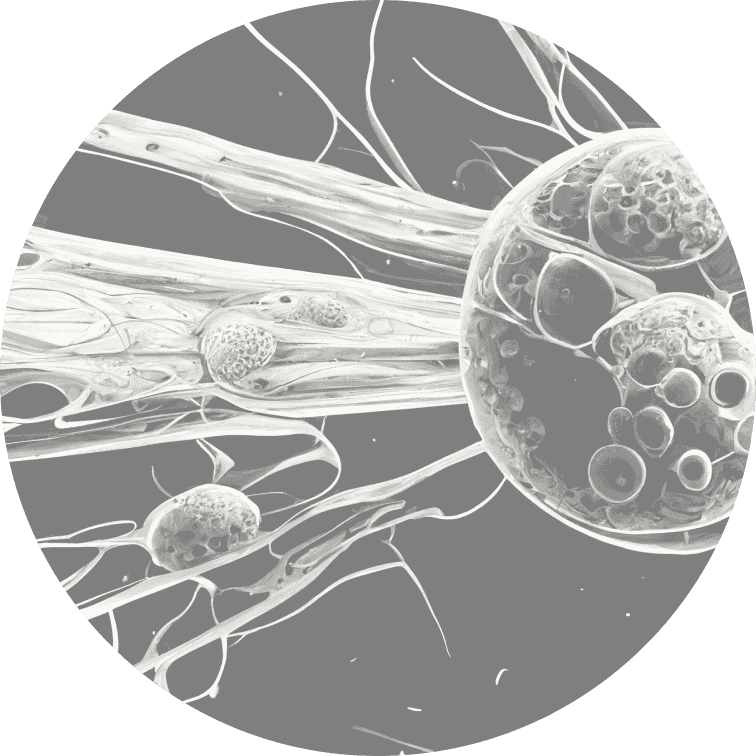Our Thesis
March to Abundance
To us, abundance is not an end-state of gluttony but rather a North Star to which humanity aspires through continual problem-solving and innovation.
We founded HOF in 2016 to connect the most relentlessly ambitious founders to the capital and resources that they need to succeed, thereby accelerating the march towards a society of technologically-enabled abundance. Progress towards this goal cannot be achieved by backing “safe” ventures — for example, companies using already-proven technology and applying a formulaic business model. It can only be done by backing the visionary founders who build nascent platforms and take on fundamental technology or business model risk.
As an aside, history tells us that these same sorts of opportunities are also capable of producing the greatest financial returns.
The Next Steps Towards Abundance
We believe that technologies that advance the march to abundance can come from unexpected domains, so we approach each new opportunity with an open mind. At the same time, we are constantly refining our theses about the most critical next steps in this march. Below are some of the technologies that we believe will see meaningful advancements over the next decade.

01
Freedom from repetitive work through AI and automation
Utopia cannot be achieved if people are bogged down by rote work for the majority of their waking lives, and yet, repetitive unfulfilling tasks are crucial to the function of many of the most productive companies. Thankfully, AI now has the potential to eliminate large swaths of this work. For example, new technologies such as large language models can now complete various cognitive tasks at similar proficiency to a human. If AI capabilities continue to accelerate at a rate faster than Moore’s Law, then billions of person-hours of repetitive work will be automated each year, and in some cases, AI will be capable of completing tasks that were previously intractable to even the most skilled humans. A multi-trillion dollar opportunity lies in both the infrastructure that powers this AI, as well as in the applications that deliver it.
The illustrations on this page were created with MidJourney, an AI art bot.

02
Freedom to transact and financial security
Access to financial services, such as banking, credit, and insurance, are a key underpinning of an abundant society. Given some of our team members’ roots in developing economies, we are sensitive to the fact that this access is not yet a reality for much of the global population. Even those who do have access to such services are often subject to low quality user experiences, archaic processes, and exorbitant fees, making it difficult for them to transact or build meaningful wealth. Thankfully, in the last decade, proliferation of mobile phones has expanded access to core financial needs for many. Furthermore, we are optimistic that applications built on decentralized networks will ultimately serve as an important medium to extend financial services to those who have been barred from legacy institutions.

03
Freedom from genetic disease and biological limitations
Perhaps one of the most unfair realities of life is that some people are born with unfavorable genetics that expose them to greater disease risk and overall poor health. For example, just a single base-pair point mutation in the hemoglobin-beta gene causes sickle cell anemia, resulting in a lifetime of discomfort and a significantly reduced life expectancy. However, in 2012, a landmark paper demonstrated that clustered regularly interspaced short palindromic repeats (CRISPR) could enable scientists to edit specific sequences of DNA in a faster, more precise, and more cost-effective manner, enhancing humankind’s ability to change the previously immutable coding of life. Genetic engineering technologies like CRISPR have the potential to eliminate genetic diseases like sickle cell for hundreds of millions of people, an important step forward in the march towards utopia. In the long-term, we believe that a deeper understanding of genetics and biology will enable mankind to surpass other previously insurmountable limitations, such as aging and infertility.
In the long-term, we believe that AI-human integration and gene-editing enabled super capabilities will shatter our pre-existing biological limitations in even more dramatic ways.

04
Interconnection of humanity
In utopia, people can freely connect, form relationships, and transact with peers from across the world. Those of us who live in vibrant cities often take for granted the benefit of our surroundings; we are surrounded by accomplished and intelligent people, as well as great workplaces, nature, and entertainment. However, much of the world’s population does not have this experience, as they are isolated or surrounded by relatively homogenous populations. Internet access through smartphones and desktop computers have helped close this gap to some extent, but our world is still a far cry from utopia. As they reach maturity, new mediums such as virtual reality, augmented reality, and, in the long term, brain-computer interfaces, will facilitate new forms of commerce, entertainment, and work.
Ideally, brain-computer interfaces will generate experiences right into our neural substrate for much richer connections, facilitating new kinds of networked thought.
The clouded horizon
Some naysayers push back against the idea that technology company founders can help bring us closer to abundance. Popular sentiment in the media and politics is that these founders do more harm than good for society, often citing examples of oversight or unethical behavior by certain founders and presenting them as the norm. However, we believe that such instances of social harm are rare and vastly outweighed by the good achieved by mission-driven and relentless founders. The fact that the advancement of technology has been of net benefit to society is supported by a variety of data, including declining global poverty rates and growing global human development indices.
In the last 20 years, nascent technology companies have produced countless prosocial and beneficial advances.
Game-changing technologies advanced by venture-backed companies include reusable rockets, widely-accessible genome sequencing, conversational AI, affordable electric vehicles, as well as faster and more convenient access to education, communication, and entertainment. Without the efforts of the founders who brought about these innovations, society would be at great risk of stagnating on its march to abundance. Unfortunately, founders today are often met with extreme skepticism, criticism, and opposition, so they must be more relentless than ever before.
The founders we back
Although we believe that the future will be built by founders from all backgrounds and walks of life, the truth is that the responsibility of being a CEO of a venture-backed company is not for everyone — in fact, our observations suggest that only a small fraction of the population has the traits necessary to succeed in such a position. Given the high expectations of growth for venture-backed companies, exceptional leadership ability, work ethic, and clarity under pressure are table stakes for successful founders.
Moreover, since outcomes for venture-backed businesses follow a power law distribution, the most accomplished founders tend not only to be hypercompetent but also possess an incredibly rare technical skill or personal characteristic that enables their success. For example, founders with the outlier trait of having a voracious appetite for computer programming from a young age were at a fundamental competitive advantage during the past several decades (e.g., Mark Zuckerberg, Larry Page, Bill Gates).
Such an outlier trait can rarely be cultivated opportunistically — by the time the value of a specific trait becomes obvious, an oversaturation of competitors possessing that same trait usually emerges.
This is why the best founders will include an overrepresented proportion of individuals who possess esoteric interests or neurodivergent tendencies in addition to exceptional communication ability and competence. This turns out to be a rare & zenlike combination of traits, hence why we are so excited to partner on the infrequent occasions when we come across individuals who possess it.
How we support founders
At the time that we founded HOF (and even more so now), we recognized that firms that offered capital alone had become commoditized. Hence, we took great care while building the firm to ensure that we have a unique edge — namely our ability to unlock game-changing partnerships for our portfolio companies. We assembled a limited partner base that consists of 200+ leading family offices and enterprises, mostly of significant size (e.g., each controlling billions of dollars of assets or thousands of employees).
Visit our partners page for more information on how we leverage that network to support portfolio companies.
Conclusion
While headline news may grow increasingly pessimistic and certain groups may grow hostile towards technology, the march to abundance will continue thanks to the efforts of relentless entrepreneurs and the small army of employees, customers, and investors who take a chance to partner with them. Regardless of the distracting vicissitudes of market cycles, we remain dedicated to providing those entrepreneurs with not only capital but meaningful support and game-changing connections to help advance their missions.